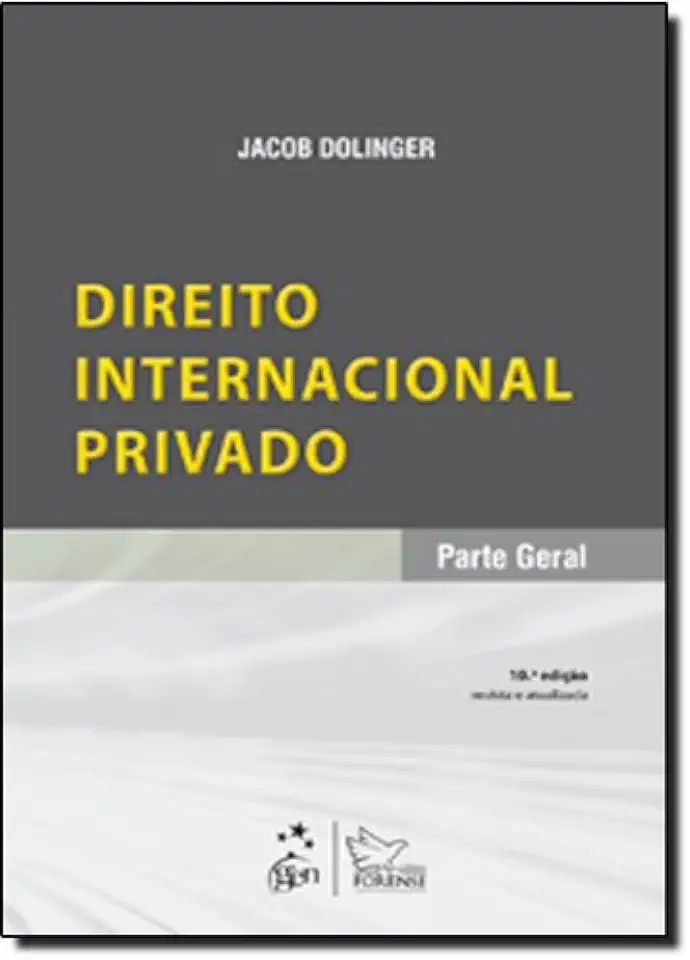
Private International Law - General Part - Jacob Dolinger
Private International Law - General Part: A Comprehensive Guide to the Conflict of Laws
Introduction
In today's globalized world, individuals and businesses frequently engage in cross-border transactions and activities. This can give rise to complex legal issues involving the application of different national laws. Private international law, also known as conflict of laws, provides a framework for resolving these issues by determining which law should apply to a particular case.
Key Concepts and Principles
At the heart of private international law lies the concept of jurisdiction. Jurisdiction refers to the power of a court to hear and decide a case. In international cases, courts must first determine whether they have jurisdiction before they can proceed with the case. This involves considering factors such as the parties' nationality, the location of the relevant events, and the subject matter of the dispute.
Another key concept in private international law is the choice of law. Choice of law refers to the process of determining which national law should govern a particular case. This can be done by agreement of the parties, by operation of law (e.g., based on the relevant connecting factors), or by a court's decision.
Sources of Private International Law
Private international law is derived from various sources, including:
- Treaties and conventions: International treaties and conventions, such as the Hague Conventions on Private International Law, provide a framework for resolving conflicts of laws between different countries.
- National legislation: Each country has its own national legislation on private international law. These laws set out the rules for determining jurisdiction and choice of law in international cases.
- Case law: Court decisions in international cases can also contribute to the development of private international law. These decisions provide guidance on how to apply the relevant rules and principles in specific situations.
Application of Private International Law
Private international law is applied in a wide range of legal areas, including:
- Contract law: Private international law determines which law governs the validity, interpretation, and enforcement of contracts between parties from different countries.
- Tort law: Private international law determines which law governs liability for cross-border torts, such as personal injuries or property damage.
- Family law: Private international law determines which law governs issues such as marriage, divorce, child custody, and inheritance in international cases.
- Commercial law: Private international law determines which law governs commercial transactions, such as sales of goods, carriage of goods, and international payments.
Conclusion
Private international law is a complex and challenging field of law, but it is also essential for resolving cross-border legal disputes. By understanding the key concepts and principles of private international law, individuals and businesses can navigate the complexities of international transactions and activities with greater confidence and certainty.
Why You Should Buy This Book
If you are a lawyer, judge, scholar, or student of private international law, this book is an essential resource for your library. It provides a comprehensive and up-to-date analysis of the general principles of private international law, including jurisdiction, choice of law, and recognition and enforcement of foreign judgments. The book also includes a detailed discussion of the relevant international treaties and conventions, as well as national legislation and case law from around the world.
This book is also an invaluable tool for practitioners who deal with cross-border legal issues. It provides practical guidance on how to resolve conflicts of laws in international cases, and it can help you to avoid costly mistakes.
Whether you are a seasoned professional or a newcomer to the field of private international law, this book is a must-have resource. Order your copy today and start exploring the fascinating world of international law!
Enjoyed the summary? Discover all the details and take your reading to the next level — [click here to view the book on Amazon!]